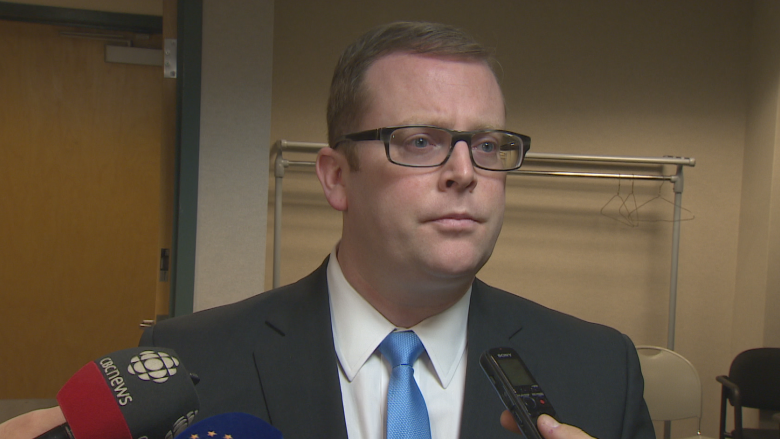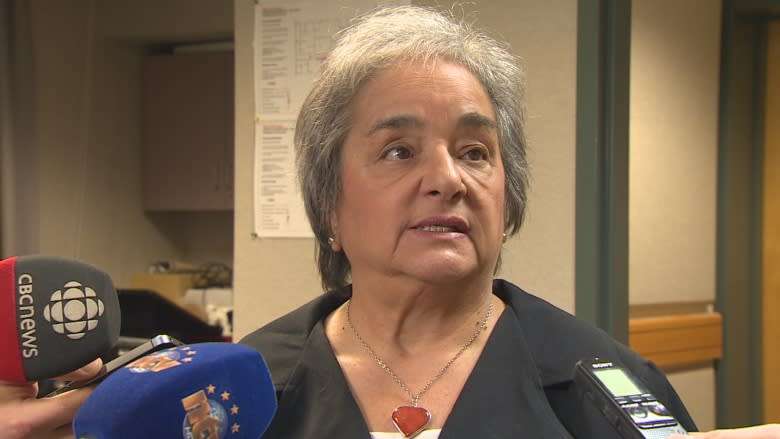New legislation assures patients' right to information after medical mishaps, minister says
New health-care legislation in Newfoundland and Labrador will ensure patients' right to information, says Health Minister John Haggie.
Speaking at a news conference Tuesday afternoon at Confederation Building, Haggie said the new Patient Safety Act bridges gaps in current legislation on mandatory reporting, quality assurance and patient access to information.
The act addresses recommendations from the Cameron inquiry, which was called in 2007 to investigate delayed and erroneous test results for breast cancer patients.
"There is no greater vulnerability that patients face as when in seeking health care, a mistake, accident, error or inadvertent harm occurs," Haggie said. "Patients and families live with the consequences and health-care providers live with the burden."
The new legislation will allow future commissions full access to quality assurance reports, said Haggie, and will keep patients in the loop on any developing facts in their case.
Each regional health authority must develop a policy for disclosing information to a patient after a mistake is made.
As well, they must let the patient know all the facts as they become known, must educate the patient on consequences of the mistake, and must inform them of the steps taken to ensure it does not happen again.
Information protected from courts, not from inquiries
Embedded in the act are amendments for several pieces of existing legislation, with two important changes.
A section of the Evidence Act has been clarified to exclude quality assurance information from legal proceedings. This ensures the minutes from a quality assurance committee meeting can not be used in a fault-finding court case. The hope is that the protection will encourage frank discussion and debate in the course of problem-solving.
The second change comes to the Public Inquiries Act and ensures a person cannot withhold information on quality assurance should a public inquiry be called into a patient safety matter.
Opposition health critic Steve Kent said the new legislation is mostly agreeable, but leaves significant gaps.
It doesn't extend to private practitioners or paramedics and didn't consult the province's Child and Youth Advocate, he said.
The Office of the Child and Youth Advocate had called for mandatory reporting on critical incidents involving children.
"It doesn't take that next critical step of ensuring the Child and Youth Advocate is notified," Kent said. "This was an amazing opportunity to bring that into legislation while bringing everything else into the force of law."
Kent said the legislation was well underway he served as health minister in the former Tory government.
He told reporters he did not bring the legislation forward at the time because those issues were not addressed.
NDP health critic Lorraine Michael said her party will lend its support to the bill, but she would like to see a public database where information on incidents is readily available.
"We haven't gone far enough with regard to the sharing of information," she said. "To me that's the major weakness of the legislation."




